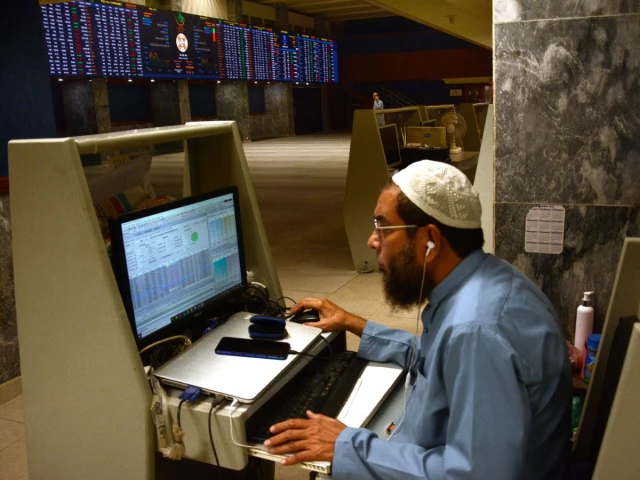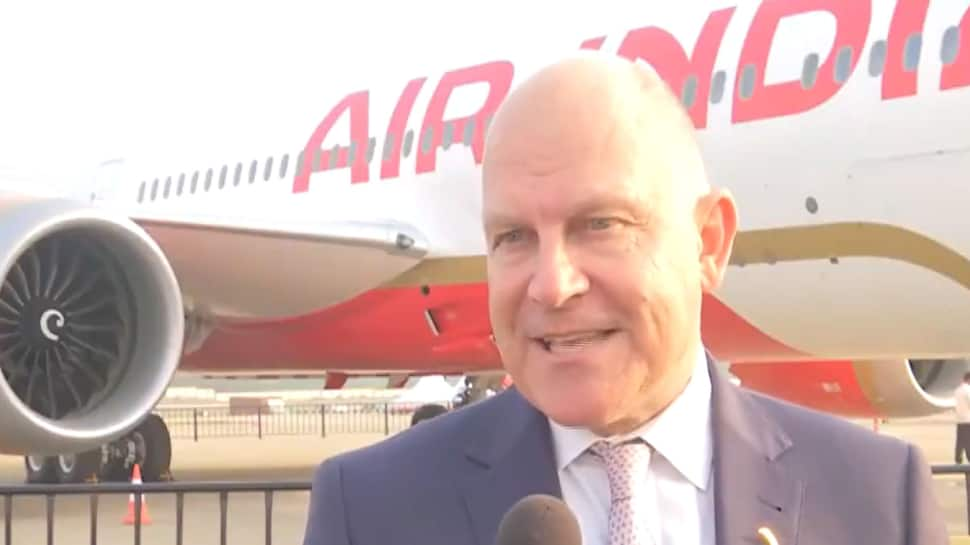Business
Probe Into Air India Crash To Move As Per International Mandate: Centre Informs SC

New Delhi: The Central government informed the Supreme Court on Thursday that the investigation into the Air India Ahmedabad crash is being conducted by Indian authorities, in accordance with the mandate laid down by the International Civil Aviation Organisation (ICAO).
The Solicitor General of India (SGI) Tushar Mehta, appearing for the Centre, submitted that the victims of the crash include foreign nationals as well. This, Mehta added, requires the investigation to be handled as per the international regime, which is followed in air crashes.
During the hearing, the Supreme Court, after hearing the Centre’s oral submissions, asked the petitioners, the father of deceased Captain Sumit Sabharwal, and an NGO, Safety Matters Foundation, to file their counter-replies to the Centre’s submissions, in this regard.
Earlier, the Supreme Court had sought the Centre’s response on pleas filed by petitioners seeking an independent, court-monitored probe into the Air India Ahmedabad crash that killed 260 people.
During the hearing today, Senior Advocate Gopal Sankarnarayan and Advocate Prashant Bhushan, appearing for the petitioners Pushkarraj Sabharwal, who is the father of Captain Sumit Sabharwal, the pilot of the Air India flight that crashed near Ahmedabad airport on June 12, and Safety Matter Foundation, another petitioner, sought a court-independent probe into the crash.
Bhushan stated that, as per the rules provided by the government, an accident of such a serious nature requires a court-ordered inquiry. Senior Advocate Gopal Sankaranarayanan, in agreement with the Centre’s submission, stated that there is indeed an international framework to be followed in the event of such crashes, but it is not being followed by the Central government.
During the hearing, the apex court also clarified that the Air Accident Investigation Bureau of India’s (AIBB) preliminary report has nothing to do with attributing responsibility or blame with respect to the tragic crash.
“It is not to apportioning responsibility, it is to clarify the cause and then give reasoning of the crash”, Justice Bagchi said.
Counsels appearing for petitioners also informed the Court that the Centre has not yet filed its response on their pleas seeking an independent probe into the crash. After noting the same, the Court asked the Centre to file its response in writing.
It also asked the petitioners to file their counter replies to the Centre’s response and listed the matter on a later date. (The listed date for the next hearing in the matter will be confirmed once today’s order is uploaded on the official Supreme Court website.)
Business
‘Very successful emerging economy’: UN chief António Guterres hails India as AI Impact Summit host – The Times of India

UN Secretary-General Antonio Guterres on Saturday endorsed India as the perfect host for the AI Impact Summit 2026 starting Sunday, praising the nation’s growing global influence and successful economy. The first-ever AI summit in the Global South will be held from February 16-20, bringing together world leaders, tech CEOs, and policymakers to discuss artificial intelligence’s future while ensuring its benefits reach everyone globally.In an exclusive interview with PTI, Guterres strongly backed India’s initiative, saying “I strongly congratulate India for organising this Summit. It’s absolutely essential that AI develops itself to the benefit of everybody, everywhere and that countries in the Global South are part of the benefits of AI.”
The UN chief warned against AI becoming a privilege of developed nations or limited to superpowers like the US and China. He emphasized that AI must serve as “a universal instrument for the benefit of humankind.”Speaking about India’s role in global affairs, Guterres praised the country’s position as a key emerging economy. He highlighted recent developments like India’s trade agreement with the European Union as positive steps toward true global multipolarity. “The role of India, (which) is today a very successful emerging economy that is having a bigger and bigger role in not only the global economy but in its influence in global affairs, India is the right place to have this Summit and to make sure that AI (is) being discussed in depth, in all its enormous potential and also in all its risks, but that AI belongs to the whole world and not only to a few,” he said.Further praising India, he added, “I see India in the centre of those emerging economies, and this is something I would be delighted to discuss with Prime Minister Modi because I have a lot of hope for the role that India can play in shaping this multipolar world.”The UN chief expressed his “frustration” with the Security Council’s ineffectiveness and called for fundamental reforms to better represent today’s world, referring to India playing a central role in shaping a multipolar world order.“There are two things we need to avoid in the world. We need to avoid the system in which there is total hegemony by only one power or a system in which the world is divided between two superpowers,” Guterres also said.Guterres also shared his personal appreciation for India, describing his fascination with the country’s rich history and cultural influence. He mentioned how he’s currently reading about India’s historical impact on various regions, from China to Southeast Asia and even the Mediterranean during the Roman Empire.The summit will see presence from various world leaders, including French President Emmanuel Macron, Brazilian President Luiz Inacio Lula da Silva, and tech leaders like Google CEO Sundar Pichai, Adobe CEO Shantanu Narayen, and Anthropic CEO Dario Amodei.The summit will also feature other UN leaders, including Human Rights Commissioner Volker Turk and Technology Envoy Amandeep Singh Gill, focusing on the summit’s core themes of ‘People, Planet and Progress’.
Business
Strategic sovereignty a guiding imperative in reshaping global economy, say CEOs – The Times of India

NEW DELHI: In a rapidly reshaping global economy, strategic sovereignty has emerged as a guiding imperative, as nations navigate global supply chains while safeguarding critical capabilities in an increasingly fragmented world, global business leaders said. During a panel discussion, KPMG India CEO Yezdi Nagporewalla, global leaders across new age economy, technology and defence, financial inclusion, and consumer sectors, discussed the challenges and opportunities of operating in a fragmented global economy.Highlighting the core of strategic sovereignty in a world of global supply chains, General Atomics Global Corporation CEO Vivek Lall, chief executive of, said, “It is about reducing vulnerability to geopolitical choke points, whether in energy, technology, manufacturing, logistics, or data. Strengthening domestic capabilities while building trusted international partnerships is critical, and it is equally important to develop resilience against any potential choke points. As the global community moves forward, the underlying theme is going to be human resource training and human resource knowledge, capabilities. This is often underemphasized, but at the root of strategic sovereignty is a strong focus on human resource development.”Talking about how strategic sovereignty is reshaping the flow of global capital, Kishore Moorjani CEO – Alternatives, Private Funds CapitaLand Investment said, “Perhaps there’s no better place to see that in action than in India. When the country began liberalising over 30 years ago, it was hungry for capital and attracted significant foreign institutional investment. While FII capital is important, it can be fickle. Today, the situation has reversed: capital is chasing India… We respect the sovereignty of the markets we operate in and align our investments accordingly. We come to build India, not just trade.”Discussing the role of financial institutions in building national resilience, Mary Ellen Iskenderian, president & CEO of Women’s World Banking, said, “True economic resilience depends on inclusive access to savings, credit, insurance, and digital payments. Financial inclusion strengthens households and communities, particularly in the face of climate shocks and economic volatility, reinforcing national stability from the ground up.”On the question of how consumer brands maintain core identity while navigating local cultures, regulations, and consumer expectations, Mike Jatania, CEO and chairman The Body Shop & co-founder of Aurea, said: “For brands operating across borders, maintaining identity while respecting national priorities is essential. If your brand has a clear purpose and core values, it can adapt locally without losing its identity. Purpose, transparency, and trust are economic currency.”
Business
PSX sheds 2.5% on weak earnings, Reko Diq | The Express Tribune

KARACHI:
Pakistan’s stock market remained under heavy pressure during the week ended February 13 as the benchmark KSE-100 index plunged 4,526 points, or 2.46% week-on-week, to close at 179,604 amid heightened volatility, weak corporate earnings, and investor concerns surrounding developments related to the Reko Diq mining project.
Market sentiment remained fragile due to persistent selling across major sectors, while analysts also linked the downturn to rising political and security tensions, which weighed on risk appetite and triggered cautious trading activity throughout the week.
On a day-on-day basis, the Pakistan Stock Exchange (PSX) started the week with a big loss, when the KSE-100 dived 1,789 points (-0.97%) to settle at 182,340. On Tuesday, the bourse experienced a consolidation phase as the index closed at 182,154, down 187 points (-0.10%).
However, the market staged a rebound from its intra-day low near 182,000 on Wednesday, settling at 183,049, up 896 points in a largely range-bound session. The second last day of the week witnessed a negative session, which erased 2,537 points (-1.39%) and closed at 180,513. The PSX extended its losses on Friday, with the KSE-100 declining by 909 points (-0.50%) at 179,604, breaching the key psychological support level of 180,000.
Arif Habib Limited (AHL), in its weekly commentary, noted that the KSE-100 remained bearish throughout the week, losing 4,526 points (-2.46% WoW) and ending at 179,604. The bearish trend was observed due to selling pressure, some lower-than-expected corporate results and high volatility stemming from concerns related to Reko Diq. During the week, Moody’s revised Pakistan’s banking system outlook from positive to stable, which indicated that while macroeconomic indicators had shown improvement, the recovery in the operating environment continued to be gradual.
Moreover, remittances from overseas Pakistanis increased by 15% year-on-year to $3.5 billion during January 2026 compared to $3 billion in January 2025. On a month-on-month basis, remittances decreased by 4%. Auto sales increased to 23.1k units, up by 74% MoM in Jan’26, while on a YoY basis, it rose by 35%.
In the MSCI Index review for Feb’26, Abbott Laboratories was deleted from the MSCI FM Standard Pakistan Index, while Security Papers and Zarea Ltd were included, and Lalpir Power was deleted from the MSCI Small Cap Index, AHL said.
Gas production was down by 7.8% WoW to 2,798 million cubic feet per day, while oil production fell significantly by 11.7% WoW to 59,121 barrels per day during the first week of Feb’26. The central government debt rose by 1.3% MoM to Rs78.5 trillion (+9.6% YoY) as of Dec’25 compared with Rs71.6 trillion in Dec’24. Meanwhile, the State Bank-held reserves increased by $20.6 million to $16.18 billion, with import cover now standing at 2.53 months, AHL added.
Wadee Zaman of JS Global said the KSE-100 index remained under pressure during the week, declining 4,526 points (-2.5%) WoW amid cautious investor sentiment driven by rising political tensions and security concerns in Balochistan, creating uncertainty around the Reko Diq mining project.
On the macro front, an IMF mission is expected later this month to start discussions for the third review under the $7 billion Extended Fund Facility. Pakistan has met three out of five major conditions so far.
Remittances for Jan’26 stood at $3.46 billion, up 15.4% YoY, taking 7MFY26 inflows to $23.2 billion, up 11% YoY. In the MSCI review, Pakistan saw two additions and two deletions across the Frontier Market and Small Cap indices, effective February 27.
On the fiscal side, PSDP spending reached Rs273 billion in 7MFY26, reflecting only 27% utilisation out of the FY26 allocation of Rs1 trillion, while the Finance Division reported a primary surplus of Rs4.1 trillion in 1HFY26, equivalent to 3.2% of GDP.
On the sectoral front, Moody’s revised Pakistan’s banking sector outlook to stable from positive, citing a gradual recovery. Meanwhile, four-wheeler auto sales surged 38% YoY to 23k units in Jan’26, marking a 43-month high and taking 7MFY26 growth to 43% YoY.
-

 Entertainment1 week ago
Entertainment1 week agoHow a factory error in China created a viral “crying horse” Lunar New Year trend
-

 Business5 days ago
Business5 days agoAye Finance IPO Day 2: GMP Remains Zero; Apply Or Not? Check Price, GMP, Financials, Recommendations
-

 Tech1 week ago
Tech1 week agoNew York Is the Latest State to Consider a Data Center Pause
-

 Tech1 week ago
Tech1 week agoNordProtect Makes ID Theft Protection a Little Easier—if You Trust That It Works
-

 Tech1 week ago
Tech1 week agoPrivate LTE/5G networks reached 6,500 deployments in 2025 | Computer Weekly
-

 Fashion5 days ago
Fashion5 days agoComment: Tariffs, capacity and timing reshape sourcing decisions
-

 Business1 week ago
Business1 week agoMandelson’s lobbying firm cuts all ties with disgraced peer amid Epstein fallout
-

 Business1 week ago
Business1 week agoStock market today: Here are the top gainers and losers on NSE, BSE on February 6 – check list – The Times of India









